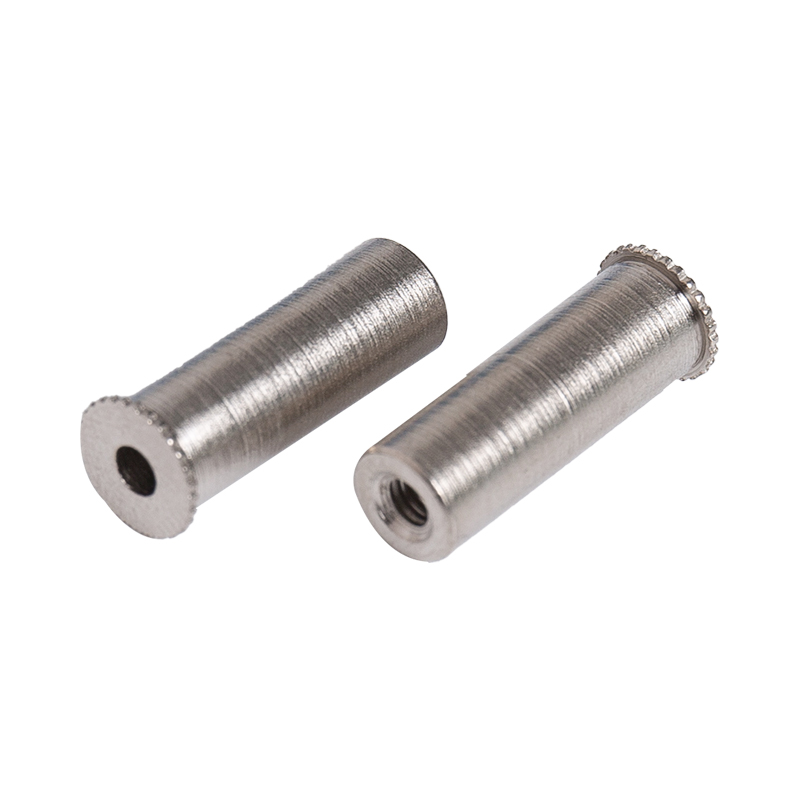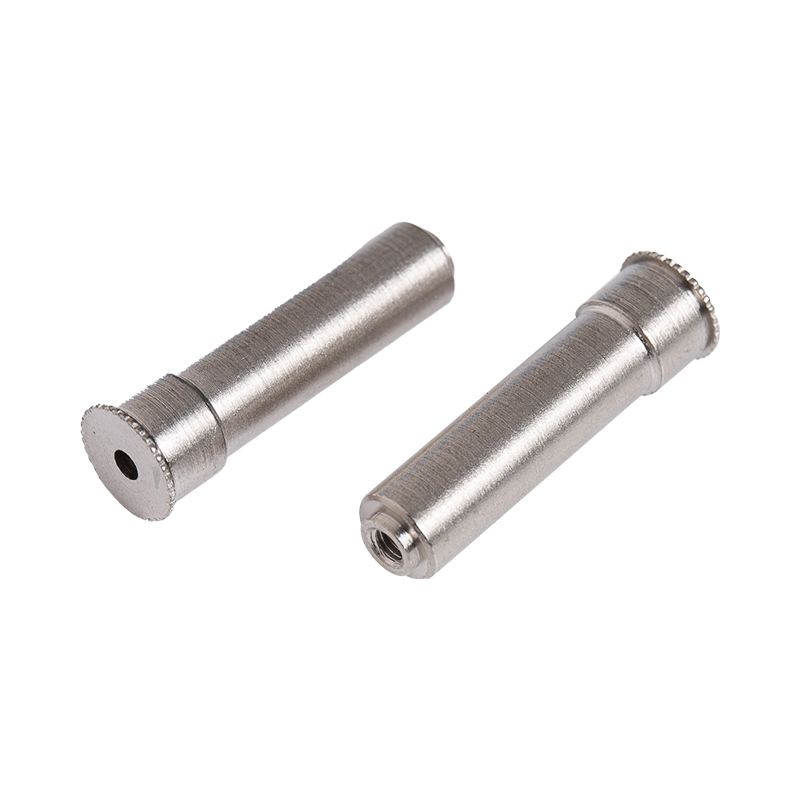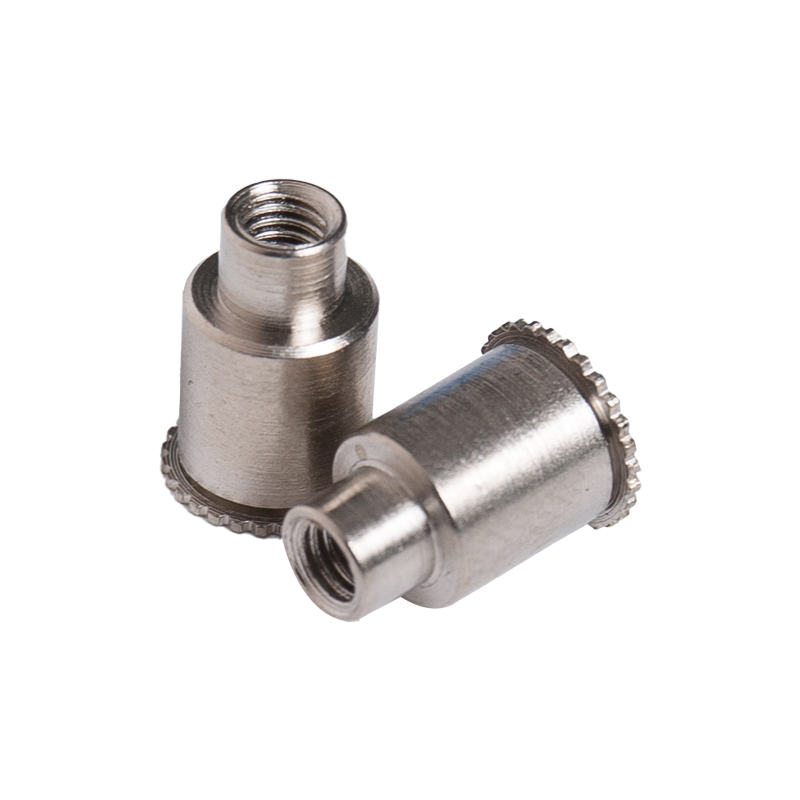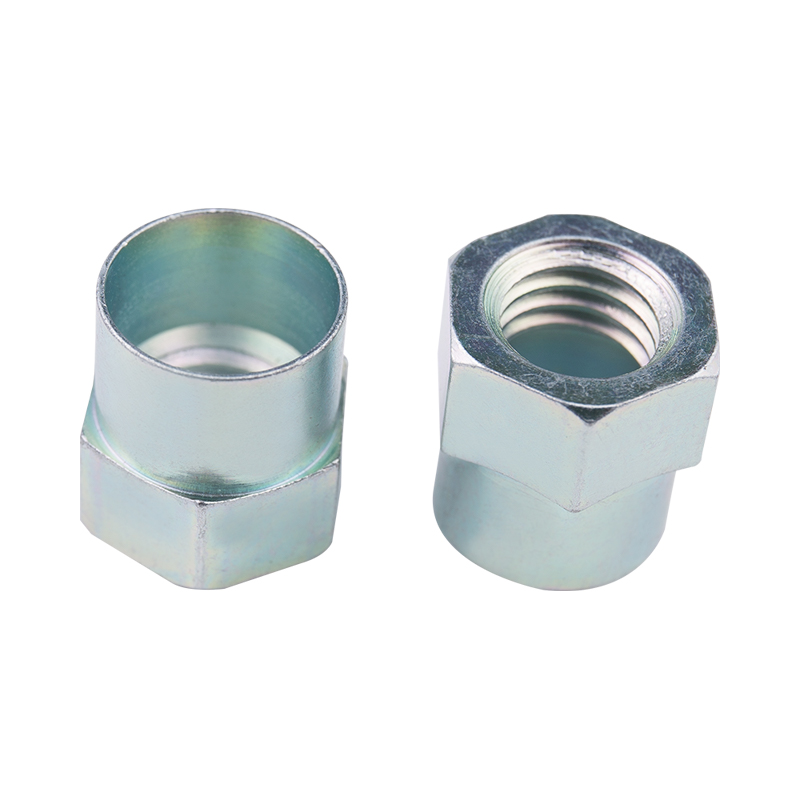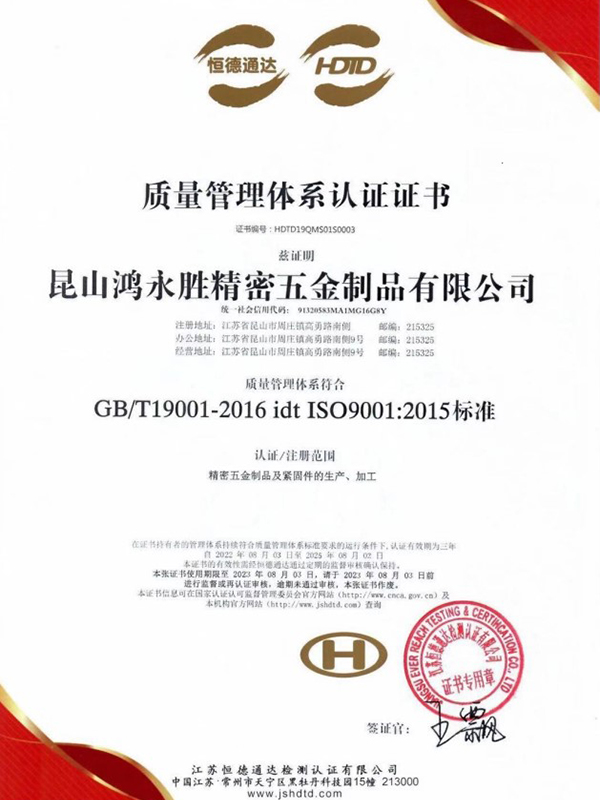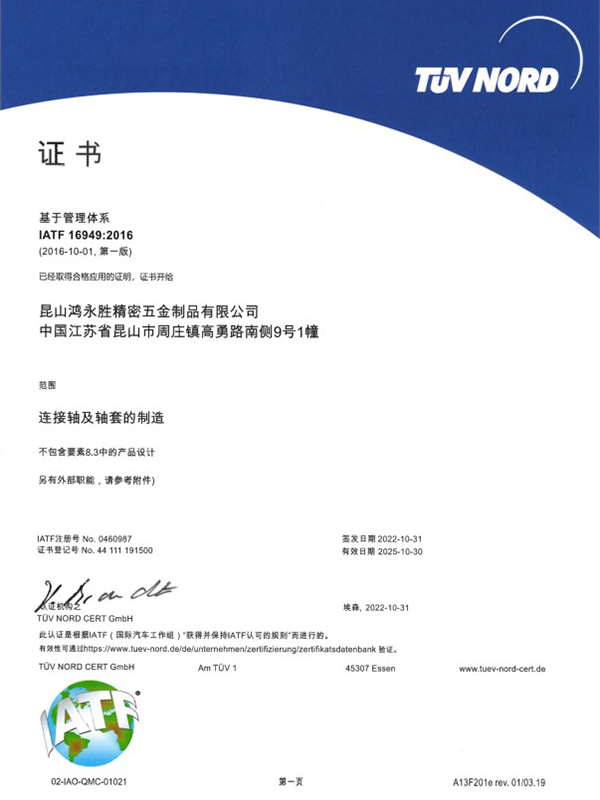Definition and Basic Concept of Hexagonal Rivet Nuts Hexagonal rivet nuts are internally threaded fasteners designed to create strong, load-bearing threads in thin or hollow materials where convention...
READ MOREThe company has obtained two quality system management certificates of ISO9001:2015 and IATF16949:2016.
At present, the company has been for Japan, Sweden, the United States, Singapore, Malaysia, Hong Kong and the Pearl River Delta and many other customers to provide services, now the main customers are: Japan Sharp (SHARP), Japan SMC, Japan Panasonic (Panasonic), the Swedish automobile VOVOL, etc., all the fixed assets investment of more than 30 million dollars, welcome friends from all walks of life to the factory to visit, study, consulting and come! We welcome friends from all walks of life to visit our factory, investigate, consult and come to us for sample processing.
We are looking forward to establishing a good business partnership with you with mutual trust and reciprocity!
-
-
Understanding Sealing Requirements in Hydraulic and Pneumatic Systems Hydraulic and pneumatic connections operate under internal pressure, media flow, and frequent pressure fluctuations. In these syst...
READ MORE -
Introduction to Screw Hardware Screw hardware is a fundamental component in construction, manufacturing, and DIY projects. It plays a critical role in joining materials securely, providing structural ...
READ MORE -
Introduction to Round Head Cross Bolts Round head cross bolts are a type of fastener widely used in construction, machinery, and industrial applications. They feature a rounded head with a cross slot ...
READ MORE
Are special tools required for installing non-standard expansion rivet nuts?
Typically, special tools are required for installing non-standard expansion rivet nuts. These tools are designed to facilitate the insertion of the rivet into the nut and the expansion process. The specific tool needed may vary depending on the size and type of the rivet nut being used.
Common tools used for installing non-standard expansion rivet nuts include:
Rivet Nut Tool: This tool is specifically designed to securely hold the rivet nut in place while the rivet is inserted and expanded. It ensures proper alignment and prevents the nut from rotating during installation.
Rivet Nut Setting Tool: Also known as a rivet nut setter or installation tool, this tool is used to expand the internal part of the rivet nut once the rivet is inserted. It applies pressure to deform the nut, creating a tight and secure connection.
Hand Rivet Nut Tool: This is a handheld tool that combines the functions of holding the rivet nut and setting it in one device. It is convenient for manual installations in tight spaces or for occasional use.
Pneumatic or Hydraulic Rivet Nut Tool: These are powered tools that use compressed air or hydraulic pressure to quickly and efficiently install rivet nuts. They are suitable for high-volume production environments where speed and consistency are important.
Can non-standard expansion rivet nuts be adapted to different material thicknesses?
Non-standard expansion rivet nuts can typically be adapted to different material thicknesses. One of the advantages of these nuts is their versatility in accommodating a range of material thicknesses, making them suitable for various applications.
The adaptability of non-standard expansion rivet nuts to different material thicknesses is often achieved through the selection of appropriate nut sizes and styles. Different nut sizes may be available to accommodate varying thicknesses of materials. Additionally, the design of the rivet nut itself may allow for flexibility in its expansion range, enabling it to securely fasten materials of different thicknesses.
When selecting non-standard expansion rivet nuts for a particular application, it's essential to consider the thickness of the materials being joined. This ensures that the chosen rivet nuts are compatible with the material thicknesses encountered in the assembly process.
In some cases, specific types of non-standard expansion rivet nuts may be designed for use with particular material thickness ranges. Engineers and designers should consult with suppliers or manufacturers to determine the most suitable rivet nut options for their specific material thickness requirements.
The ability of non-standard expansion rivet nuts to adapt to different material thicknesses adds to their versatility and makes them valuable fastening solutions in various industries and applications.



 русский
русский Español
Español